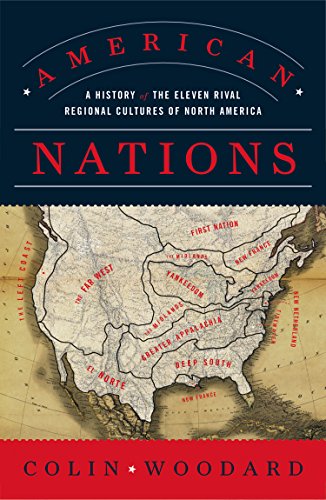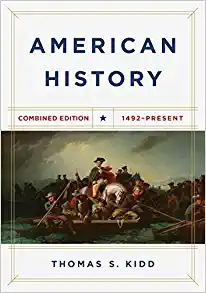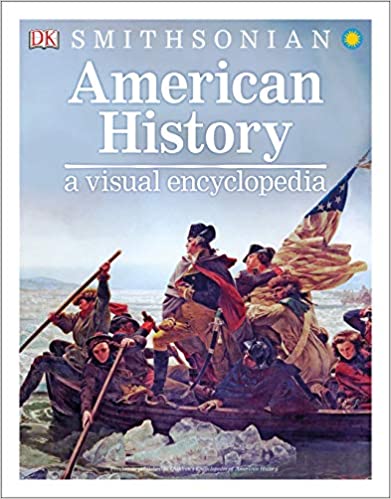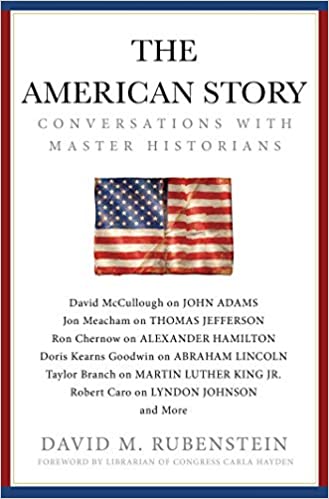Colin Woodward American Nations: A History of the Eleven Rival Regional Cultures of North America
Last updated: October 17, 2022
This book looks at the cultural differences that mark various regions of the U.S., suggesting that America's political history can be traced back to before it even began. It not only helps readers better understand the history of the country, but it can provide some context for the divisions that remain with us today.
We looked at the top American History Books and dug through the reviews from some of the most popular review sites. Through this analysis, we've determined the best American History Book you should buy.
Product Details
Key Takeaway: This American history book suggests that America is divided into 11 distinct regions, each with its unique cultural differences.
In our analysis of 34 expert reviews, the Colin Woodward American Nations
placed 4th when we looked at the top 7 products in the category. For the full ranking,
see below.
From The Manufacturer
An illuminating history of North America’s eleven rival cultural regions that explodes the red state-blue state myth. North America was settled by people with distinct religious, political, and ethnographic characteristics, creating regional cultures that have been at odds with one another ever since. Subsequent immigrants didn’t confront or assimilate into an “American” or “Canadian” culture, but rather into one of the eleven distinct regional ones that spread over the continent each staking out mutually exclusive territory. In American Nations, Colin Woodard leads us on a journey through the history of our fractured continent, and the rivalries and alliances between its component nations, which conform to neither state nor international boundaries. He illustrates and explains why “American” values vary sharply from one region to another. Woodard (author of American Character: A History of the Epic Struggle Between Individual Liberty and the Common Good) reveals how intranational differences have played a pivotal role at every point in the continent’s history, from the American Revolution and the Civil War to the tumultuous sixties and the “blue county/red county” maps of recent presidential elections. American Nations is a revolutionary and revelatory take on America’s myriad identities and how the conflicts between them have shaped our past and are molding our future.
Expert Reviews
What reviewers liked
A History of the Eleven Rival Regional Cultures of North America pulls off the unlikely feat of both offering the tools for just such a broader, deeper understanding—and demonstrates why, in a larger sense, that effort is doomed. He compellingly lays out his vision of why it makes sense to throw state boundaries out the window for the most part and think instead of 11 nations, each defined by its history, by a common culture and set of assumptions about government and life.
Woodard sets his political geography apart by delving deep into history, building on the insights of David Hackett Fischer’s “Albion’s Seed,” a 1989 analysis of the four “British folkways” in America, to demonstrate that trends in contemporary political behavior can be traced back to well before the country’s founding. Woodard provides a bracing corrective to an accepted national narrative that too often overlooks regional variations to tell a simpler and more reassuring story.
But the US isn't only made up of 50 states. It may also be a country comprised of several tribes or factions. That's according to award-winning author Colin Woodard, who writes in his book "American Nations" that there are 11 distinct cultures that have historically divided North America (Canada is included in his overall analysis).
Woodard persuasively argues that since the founding of the United States, 11 distinct geographical “nations” have formed within the Union, each with its own identity and set of values.
The first part of the book, which I enjoyed the most, describes the establishment and development of each of the 11 cultural areas listed above. The second part gives examples of how these nations have interacted during different periods and social issues. It provides an excellent foundation for understanding our nation’s history.
A remarkable book, American Nations, subtitled “a history of the eleven rival regional cultures of North America” by Colin Woodard lends answers to many of the political questions of today. Woodard shows that it is necessary to understand the history of each region and each region’s interactions with the other regions before beginning to understand why the United States is as it is today.
In his new book, author and historian Colin Woodard explores how America was shaped by settlement patterns dating back to the time of the first Thanksgiving.
What reviewers didn't like
Woodard’s personal prejudices are made most evident by the facts and events he chooses to discuss, and the ones he ignores. He laments the railway land grants in the Far West, but handily excludes of any thoughtful consideration of New Netherlands/Yankee ownership of these railroad companies.
In any synthesis as sweeping as this, there are bound to be holes. Woodard skirts some inconvenient facts (for instance, New York became the commercial capital not only because of its Dutch roots, but because of the Erie Canal).
From our partners







